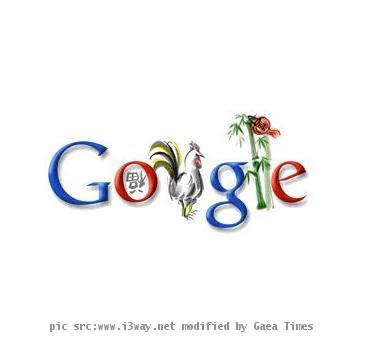Questions and answers about Google’s steps to stop censoring Internet search results for China
By Jessica Mintz, APTuesday, March 23, 2010
An explanation of Google’s moves in China
SEATTLE — Now that Google is sending Web surfers in mainland China to a Hong Kong-based site, the company is free to display complete search results on any topic without the self-censorship Beijing had required. But that doesn’t mean people in China are getting more information.
The Chinese government’s own Web filtering tools are blocking people from seeing the results of sensitive searches made on the Hong Kong site, Google.com.hk. And if it wants to, Beijing could keep people on the mainland from even connecting to the Hong Kong site.
Some questions and answers about the situation:
Q: What was Google.cn? Why would someone in China use that instead of Google.com?
A: Google operates a Chinese-language search site that people from all over the world can access. But starting in 2002, Google learned that when Web users in China typed in words deemed sensitive by Beijing, such as “the ‘89 student movement,” referring to the Tiananmen Square massacre, the requests for information didn’t always reach Google’s servers because of blocking by the Chinese government. The users’ Web browsers would stop working or show an error message. Sometimes Google.com was slow or completely unavailable to mainland Chinese users. Or people were even redirected to a competing search site.
The company launched Google.cn, using the Internet domain for China, in 2006 so people in China would have a faster and more reliable site. To be allowed to offer the service, Google had to agree to abide by Beijing’s mandate that information deemed subversive or pornographic be omitted. But Google could tell people when it was excluding results.
Q: Why is an open Internet allowed in Hong Kong but not on the mainland?
A: Hong Kong, a former British colony, was granted a degree of autonomy when it returned to Chinese rule 13 years ago. The legal and political freedoms that Hong Kong citizens had under British rule were largely preserved through the transition and are set to remain in place for 37 more years.
Q: Can China take away Google.cn and stop visitors from being sent anywhere else?
A: Yes. The China Internet Network Information Center, which answers to China’s Ministry of Information Industry, controls the master “directory” of “.cn” Web sites. It could erase “google.cn” from its domain name registry, which means people hunting for the search engine would be told “site not found.” The government also could change what happens when someone types “google.cn” into a Web browser. Instead of ending up at google.com.hk, Chinese Web surfers might end up at a competing Chinese site that still censors results.
Q: Beyond getting service providers such as Google to censor their services in the mainland, how else does China control Internet content?
A: Through filters in Internet cafes, at Internet service provider companies and at the entryways of the main intersections on the network that connect China to the rest of the world. At any point, a sensitive search could get trapped in one of those filters. The person who typed in the search might get an error page and might have problems accessing Google or other sites for some period after, even for non-sensitive searches.
Some savvy users can get around the filters. Various “proxy” servers have been set up by human-rights activists and other volunteers to fool the government into thinking a citizen is reaching an innocuous site. That proxy, in turn, grabs and returns information that might otherwise be censored. The government tries to block these proxy servers as it learns of them, but new ones quickly pop up.
Q: Does China control “.hk” domains as well?
A: No. Those are managed by Hong Kong Internet Registration Corp., a nonprofit organization that operates independently of the government. So while China can block its mainland citizens from viewing Hong Kong Web sites, including those run by Google, it can’t go into Hong Kong and shut them down.
Tags: Asia, Beijing, China, East Asia, Greater China, Hong Kong, North America, Seattle, United States, Washington

